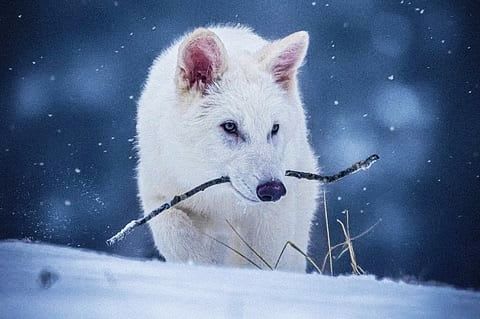In a stunning scientific development reminiscent of science fiction movies, the company "Colossal Biosciences" announced an unprecedented achievement of cloning three wolves carrying characteristics of a species extinct for thousands of years, the fearsome giant wolf, which gained wide fame thanks to its appearance in the series "Game of Thrones."
For a long time, scientists have dreamed of bringing back extinct species to life in what is known scientifically as the concept of "de-extinction," and today it seems that this dream is beginning to come true. In 2021, an independent team managed to extract the DNA of the fearsome wolf from fossils dating back to over 13,000 years ago.
Based on this discovery, scientists at "Colossal" modified 20 genes of the gray wolf to acquire some distinctive traits of the extinct wolf, such as immense size and dense fur with a pale color.
The modified embryos were implanted in surrogate dogs' wombs, resulting in the birth of three healthy pups: two males at six months old, and a female at two months old, named Romulus, Remus, and Kalisi by the scientists.
These wolves bear physical traits that distinguish them from their gray counterparts, making them closest to a contemporary version of the fearsome wolf.
The cloned wolves currently live in a 2000-acre private reserve in a secret location in northern United States.
According to Beth Shapiro, Chief Scientific Officer at "Colossal," these wolves represent the first successful case of reviving an extinct species, indicating that they are not only recreating creatures from the past but "creating functional copies of once-living organisms."
Although these wolves will remain in the reserve, the technology used may pave the way for saving endangered species, such as the red wolf, which is now only seen in North Carolina.
The choice of the fearsome wolf as an initial project was due to its technological suitability, as it has a close relationship with dogs, allowing scientists to benefit from previous experiments in cloning dogs and implanting their embryos, a feature lacking in most extinct species.
The current value of "Colossal" is estimated at around ten billion dollars, and in 2023, it began focusing its efforts on the fearsome wolf as a preliminary step to bringing back life to other forgotten species.
What was once a scientific fantasy is now a reality walking on all fours.

